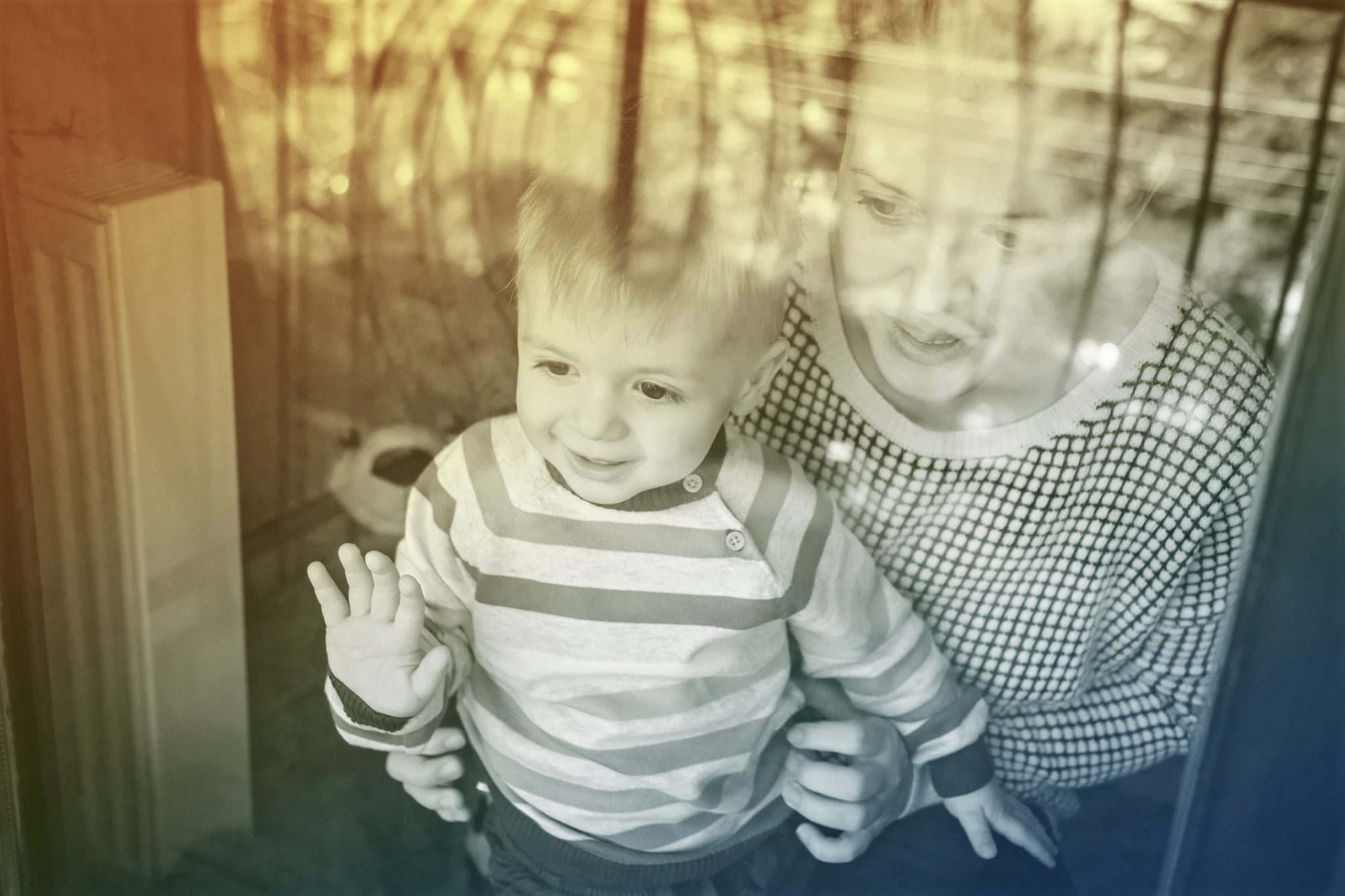
No matter what your family looks like, grappling with the specifics of your social distancing plan can feel challenging. But for parents co-parenting in different households, basics, like whether it's safe to stick to previously agreed-upon custody schedules, might suddenly feel hazy.
Experts agree: You can continue using your regular shared custody schedule or agree on a new plan that feels right for you, your co-parent, and your children—as safely as possible. And for those under stay-at-home or shelter-in-place orders, essential travel covers exchanging a child between homes, according to Sarah J. Zimmerman, attorney and partner at Feldesman Tucker Leifer Fidell LLP law firm in Washington, D.C.
If you're not in agreement, the stakes can be heartbreaking. For example, an emergency room doctor named Theresa Greene in Miami, Florida doesn't know when she'll see her 4-year-old daughter in person again, after her ex was granted temporary sole custody, arguing in court that Greene is exposing their child to the novel coronavirus after treating patients at her work.
While not every family is contending with one parent being a health care worker, it's normal for anxieties to surface around co-parenting through this pandemic. But rest assured that it can be done safely. Here are six ways for co-parents to get in sync and care for everyone's wellness.
1. Agree How You\’ll Monitor Your Health
You'll do well to come to an agreement on how both homes will monitor every resident's health, says Jann Blackstone, Psy.D., a former California Supreme Court child custody mediator and author of Co-Parenting Through Separation and Divorce: Putting Your Children First. Perhaps parents take a child's temperature every time they move between homes.
And it's more important than ever to disclose symptoms of anyone in either household, points out Denise Pate, M.D., board-certified internal medicine physician at Medical Offices of Manhattan. This includes the spectrum of COVID-19 symptoms, especially if one parent has been tested.
If a parent knows they have been exposed to someone who is sick or is showing symptoms, they need to tell the other parent immediately, says lawyer Jennifer Weisberg Millner, Esq. with Stark & Stark in Lawrenceville, New Jersey. "Temporary changes then need to be made to parenting time schedules to minimize the risk to the children," she says.
2. Set Boundaries
Dr. Pate encourages parents to be transparent about their whereabouts when away from the child. After all, frequenting grocery stores or pharmacies or seeing friends and family elevate the risk of exposure.
But when it comes to nonessential trips out of the home with a child, Millner says, "It is one thing to take a child out of the house for a hike on a trail and another to take a child to a crowded box store to pick up craft supplies. Parents are generally not expected to report a minute by minute itinerary, but would be expected to keep the other parent apprised of significant issues."
"Parents can create a list of people with whom they and their children can have contact, such as caregivers and/or extended family," says attorney Michael Aurit, J.D., MDR, co-founder of The Aurit Center for Divorce Mediation in Scottsdale, Arizona.
3. Talk Through Temporary Scheduling Changes
Families are switching up their child custody arrangements to meet specific needs. "Some parents are moving to a 'week-on, week-off' schedule to minimize child exchanges," says Aurit. "Others are temporarily establishing one parent as the 'weekday parent' and the other as the 'weekend parent.'"
One parent might focus on schooling kids at home while the other works during the week, and many co-parenting families are putting a liberal FaceTime schedule in place, so both parents stay in communication with the children daily. But depending on how long social distancing lasts, you'll want to periodically review any temporary agreements, says Aurit.
4. Make Room for Makeups
"Parents can agree that any parenting time missed during the crisis will be 'made up' in the future," says Aurit. "Parents can informally agree to this or they can choose to have documents filed with the court to ensure that the agreement is honored."
This is especially important in cases where a child ends up staying in one home for the duration of the crisis. "The parent housing the child should make a special effort to facilitate communication, and once this approach has ended, special attention should be given to the other parent and child so they can reestablish a sense of normalcy," says Dr. Blackstone.
5. Get Creative With Drop-Offs
Aurit encourages parents to be "thoughtful about how exchanging children between homes can provide stability and structure within a nurturing environment."
Ideally, social distancing should be maintained, since it’s proven to be the most effective preventative measure to combat this pandemic, says Dr. Pate. This means keeping at least 6 feet of physical distance when meeting up is best.
Getting creative with this can make it feel less jarring. Aurit recommends the following practices:
"Drop-off/pick-ups are an opportunity to shout a positive message to your co-parent," says Aurit. "Showing support for your co-parent will mean a great deal to your children."
6. Figure out What Works Best for You
Blackstone encourages co-parents to work together to make decisions that work best for their family. She concludes, "This pandemic is a perfect opportunity for co-parents to work together and truly make decisions in the best interest in the children they both love."

